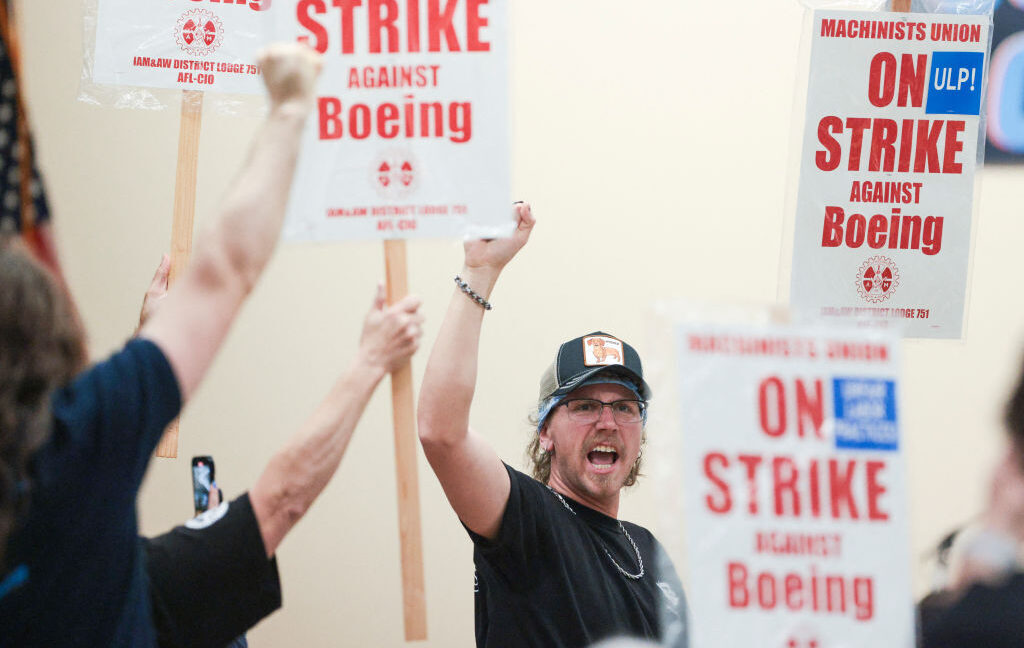- cross-posted to:
- aviation@lemmy.zip
More than 33,000 Boeing workers reached a tentative agreement Monday night to end a weekslong strike that quickly became one of the costliest strikes in recent history—estimated to have cost the US economy more than $9.6 billion.
Through their unions, International Association of Machinists and Aerospace Workers (IAM) Districts 751 and W24, workers in Washington state, Oregon, and California had previously rejected two inadequate Boeing offers while the company lost hundreds of millions daily. Negotiations had stalled until US Secretary of Labor Julie Su stepped in, IAM said in a press release, helping to restart talks and get to a deal that 59 percent of workers could agree on.
Under the proposed deal, workers will receive a 43 percent wage increase over four years, as well as a $12,000 bonus they can choose to receive in their paycheck, as a 401(k) contribution, or a combination of both. Additionally, Boeing agreed to match 401(k) contributions up to 8 percent.



love the framing of a worker action "costing" the economy money. ever since a citations ep pointed out how it's always worker actions that "cost" or "damage" a "fragile" economy, .... while just rolling over and accepting declining wages as inflation ramps up is always accompanied with endless editorializing of the economy being "strong". because it's obviously fucked, so the mouthpieces must inform us all that it's great and powerful.
any objective view of fundamental numbers show that any reduction in economic activity during worker action is immediately corrected after the action ends and generally results in remarkable improvement because workers are the economy. the powerful parasitic shitwads at the top diverting value into stock buybacks, policy capture, overshore accounts, and various speculative financial schemes are the fucking blackhole that fucks the economy.
Episode 191: How the Media’s Use of ‘The Economy’ Flattens Class Conflict, I was just listening to it this morning, some good timing.